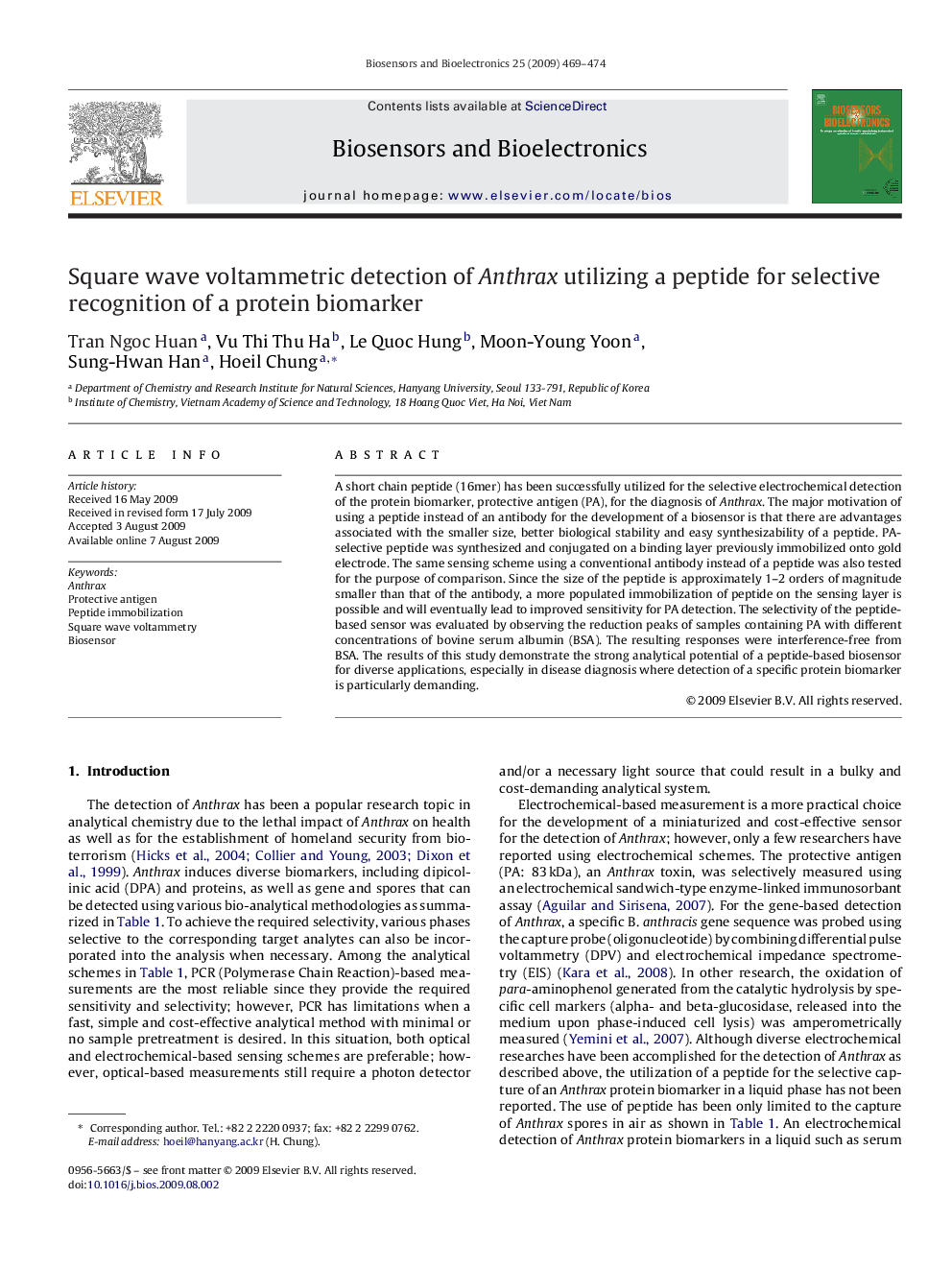| Article ID | Journal | Published Year | Pages | File Type |
|---|---|---|---|---|
| 869040 | Biosensors and Bioelectronics | 2009 | 6 Pages |
A short chain peptide (16mer) has been successfully utilized for the selective electrochemical detection of the protein biomarker, protective antigen (PA), for the diagnosis of Anthrax. The major motivation of using a peptide instead of an antibody for the development of a biosensor is that there are advantages associated with the smaller size, better biological stability and easy synthesizability of a peptide. PA-selective peptide was synthesized and conjugated on a binding layer previously immobilized onto gold electrode. The same sensing scheme using a conventional antibody instead of a peptide was also tested for the purpose of comparison. Since the size of the peptide is approximately 1–2 orders of magnitude smaller than that of the antibody, a more populated immobilization of peptide on the sensing layer is possible and will eventually lead to improved sensitivity for PA detection. The selectivity of the peptide-based sensor was evaluated by observing the reduction peaks of samples containing PA with different concentrations of bovine serum albumin (BSA). The resulting responses were interference-free from BSA. The results of this study demonstrate the strong analytical potential of a peptide-based biosensor for diverse applications, especially in disease diagnosis where detection of a specific protein biomarker is particularly demanding.
